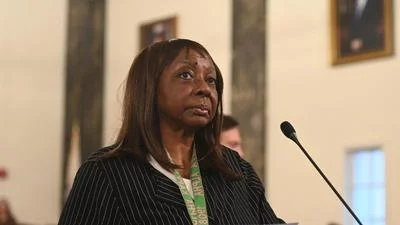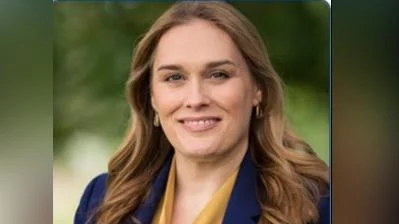Chicago Mayor Brandon Johnson. | Brandon for Chicago/Facebook
Chicago Mayor Brandon Johnson. | Brandon for Chicago/Facebook
Chicago Mayor Brandon Johnson is supporting a commission to seek reparations in the city’s 2024 budget.
“Our FY24 budget provides funding for a new Commission on Restoration & Reparations,” Johnson said on X.
Johnson’s comment came in response to a post by The TRiiBE on X.
"To this day, the city of Chicago has refused to acknowledge and commit to repairing the harms that people like my grandfather experienced," writes Richard Wallace of @EatOrgChicago," The TRiiBE said.
"His story and experience are deeply relevant…"
The account linked to an op-ed by Richard Wallace.
In the opinion piece Wallace, an artist and organizer serving as the founding executive director of Equity and Transformation, calls for immediate reparations.
Wallace highlighted the formation of the reparations subcommittee in the Chicago City Council referenced by Johnson and emphasized the need for concrete action, including allocating funding and advancing a robust reparations plan under the Johnson administration.
Wallace shared the personal story of his grandfather's migration during the Great Migration, emphasizing the relevance of understanding this history to comprehend the present migrant crisis.
In 2021, Evanston became the first city to offer public reparations to citizens who faced public discrimination.
The city implemented a reparations program for black residents, committing to disburse $10 million by 2030 using revenue from a 3% tax on recreational cannabis sales, community donations, and a city-established reparations fund.
To qualify, residents must have lived in Evanston or be direct descendants of a black person residing there from 1919 to 1969.
However, as payments began to be distributed to residents earlier this year it became clear the cannabis tax was not enough and a real estate transfer tax was also tapped for the funds.
The program has been criticized for the small number of participants, only 16 residents were among the recipients of the first round of payments, and for possibly jeopardizing federal reparations for community members.






 Alerts Sign-up
Alerts Sign-up